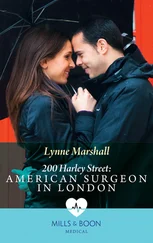Acceptance is American love, shunning is a Puritan's punishment, animals do it regularly, mother cats shun their three-month-old kittens from one day to the next-I have witnessed this ordinary crueltyturning away from or hissing at them, but human mothers shouldn't, though some do in other ways, and mammals such as humans are both obvious and subtle, like people at parties who turn toward and away abruptly, who search crowds for a partner, for sex, friendship, advancement, or to wile away time, and there is an imposingly tall woman here, the acerbic one who now leads the women's table, occasionally there is one, who peers intently over the tops of people's heads, seeking a better connection, since love and acceptance, like fame, are also pursued in this secluded place where residents hope to make themselves into something, or to escape something or themselves, or to realize themselves in a novel guise, and where some seek renown, goodness, or worthiness, while others seek calm, peace, and quiet. The Count may just want peace, he's had the other. His Calvinist relatives speak ill of him, or don't speak to him, his wife may have abandoned him, his Parisian gang deserted him, all of which is etched in deep creases on his skin, in the deep lines on his high forehead, around his mouth, and on his chin, but time is his constant friend, even if it passes and is ambivalent.
Puritanism successfully infiltrated America, nowhere else so completely, and in this country fame is a visible proof of God's love, it sits beside material wealth, intangible but a form of temporary approval, and may be gained and lost, possibly the devil's work, whose business easily fools sinners, and so the famous, whose celebrity rests on the effervescent fascination and mood of non-famous others, must maintain that goodwill through incessant appearance and reappearance, to fix their stars in a worldly firmament and also in limited imaginations. The famous become paranoid. Celebrity is coruscating and fleeting, since its value isn't attached to anything, there is no logic to fame and no use to it, except for exciting suffocated imaginations that consume hope. Dante's paradise became tiresome, blandly beautiful, because in it there was nothing left to hope for, while hell was vivid and detailed. I'm an American Calvinist who rebukes herself, also with other lives, a desperate convict on death row or an escaped slave, Harriet Jacobs, caged for years in an attic hardly bigger than her body, whose authorship was disputed because she was black, but I still can't discount all lesser anguish, and I also don't believe I should, though others' pain overwhelms or even shames mine, but relativity is also historical, so my ethical compass wobbles. It must be why a dark night is endless, when I often remind myself that I must unmake everything, but the best I can achieve is a temporary, furtive indifference to myself, the others around me, and my projects on the floor.
The transvestite frequently sat on the stoop of her tenement building with two of her friends, a woman who might be a dwarf, another in mismatched clothes, with no teeth, and I've watched them from across the street, never joining their conversations, but drawn, in a ghoulish way, to their irregular animations. The imperfections I notice and remember include skin tags, achrochordons, the excess skin or flaps that form on the human body in response to the skin's irritation in areas of friction, heat, and moisture, where a bra strap or a waistband might rub the flesh. I notice moles at the corners of lips, bristly hair shooting from them, or large, flat hairy moles that patch upper arms and backs of necks, which can be removed, but when they aren't, invariably catch my eye. There are some discolorations that can't be removed, some moles or sebaceous cysts also that, if removed, would leave small craters in legs and arms, since they run beneath the epidermis like underground rivers and more than what was apparent and visible on the skin would require removal. A cyst on the upper arm that is nearly flat on the surface of skin may have deep roots beneath and connect to another cyst farther down the arm that may be larger, and it would be a mistake, my dermatologist told me, to have it removed, because the excision's scar would be more unsightly than the cyst or mole. But I don't like moles. Also I notice stooped shoulders, wandering eyes, palsies of every sort, harelips, limps, because, for one thing, I am interested in defective bodies that function anyway. Over the years, my dermatologist has treated me for a variety of nevus, or nevi, birthmarks or moles, which he excised; seborrheic dermatitis; dilated blood vessels or telangiciectasias; benign growths, or seborrheic keratoses; solarkerotses, or sun damage; skin tags; acne rosacea; xeroderma, or dry skin; tinea, or a fungal infection of the feet or skin pads; and nummular eczema, or coin-shaped, blistery and encrusted skin, and none of these was life threatening. I didn't ever mention the pressure or weight on my heart, since he wasn't a cardiologist, and since my internist insisted, after she ordered an EKG and echocardiogram, that there was no physical cause for the pressure, that it might be stress-related, which should have been reassuring but wasn't. Each mark, redness, or patch has its charac teristics, which my dermatologist recognized immediately, and when he did, he said aloud the name of the malformation or minor disease with an intellectual's satisfaction, and I always asked him to repeat and spell it, so I could see its design and remember it. Every imperfection and unsightliness of my flesh, since failures and mishaps are worth recording, he noted, and I watched him write up, in his neat script, each defect, chronic or acute skin condition, dutifully, even lovingly, in his increasingly thick file on me.
After the removal of a nevus, my dermatologist presses cotton soaked in an antiseptic lotion or salve on the fresh wound, then he asks me to continue to press the ointment-soaked cotton against it until the blood stops flowing, and, without looking, only feeling the slight burn of medication against the skin, I do so, even though I easily become nauseated at the sight of blood and on occasion have fainted. I regret fainting at the sight of blood, a revulsion I can't control which begins as revolutions in my stomach, the second heart, and I have often envied my dermatologist's job, which involves blood spurting, but affords him the right to stare with childlike attention, professional concentration and intense pleasure at the deformities and growths, ugly moles, with hairs shooting from them, on the bodies and faces of his patients, numbering into the thousands, and then his expertise in knowing how to burn or cut them off complements his desire to rid the body, or the world, of its abnormalities and threats. When he performs a procedure, I look, if I can, without dizziness, or follow the procedure's reflection on his glasses, though sometimes he takes them off, as the blood rises to the surface of the skin and spills onto the cotton square he holds in one hand, when he appears to trust his naked eye only, and with the knowledge that he has removed some imperfection, some excess that has, in some way, gracelessly defined me, one of his patients, he confidently sprays antiseptic on the wound and covers it with a Band-Aid.
Scars form on areas where people have been badly cut or burned about which everyone has some memory, whose presence never lets you forget the event, which may have been dramatic or even traumatic. I have sometimes touched a trail of dead skin on other bodies and felt its inexpressibility, since other people's scars are different from the ones I have but not in abundance, though mine are more internal, I like to believe, but there's one that's visible, right above my left knee. My dermatologist may have marked it in his file on me. It was caused by my walking, absentmindedly, lost in the promise of a delicious, troublesome boy, angry at my mother or father, sad about my brother, or worried about a best friend, past a car with a broken fender, while I was in summer camp. By that time I longed to go to camp, to escape the place where I lived among people who had more than enough money to be content, though they were not, because money doesn't bring happiness, just its possibility, which is usually squandered, and to escape my parents and neighborhood. The jagged fender tore into my flesh. Blood streamed from a deep cut, or gash, I felt faint, collapsed, and the worried owner of the camp quickly carried me in his arms to his car, to have the cut looked at, cleaned up and stitched by a local doctor. He did a poor job, even though the cut required only six stitches, and sometimes I touch the ugly scar just above my left knee, but I can't remember all that it covers. It is the same leg on which my insane cat tore my flesh, leaving four indentations, the left leg that is controlled by the right side of my brain, which has some significance, especially to people who research and rely on such ideas. The wound was bandaged for a week or two, the raw wound and its secretions hidden, while it healed into an unsightly scar. It hid something terrible, though wounds are not supposed to be obscene.
Читать дальше












